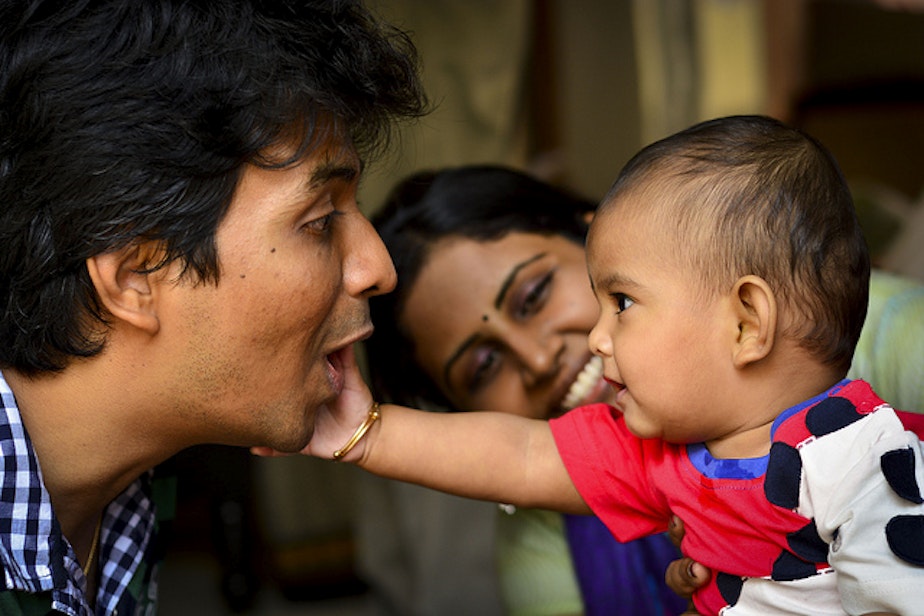Get yourself fluent in 'parentese'

How parents talk to their baby impacts the child's speaking skills later in life.
New research shows babies spoken to in "parentese" will have a larger vocabulary by the time they're toddlers. That's according to a study out of the University of Washington.
Parentese uses a high pitch, slow speaking, repetition and real words.
"For example, if we're feeding a baby you'd say 'are you eating a banana, it's a banana!" explained researcher Naja Ferjan Ramirez, the lead author of the study, published in the journal Developmental Science. In another example, a parent putting their child in the car may say "Look we're gonna put you in the car seat! Let's put you in! I'm going to buckle you in the car seat!" says Ramirez.
She discovered when parents were coached to use parentese, babies babbled more and knew more words by 14 months old.
Sponsored
"It turns out that babbling in this age group is predictive of future language skills. So babies whose parents received coaching babbled more than babies whose parents did not receive coaching," Ferjan Ramirez said.
She said parents who learn how to speak parentese can have a direct impact on a child’s vocabulary.
"By changing parental language the babies language changes as well", says Farjan Ramirez, "and to us it's very encouraging because we know that early language skills, at 14 months for example, are predictive of later language skills."
The study showed that coaching parents in parentese at 6 and 10 months increased the proportion of parentese they used, and that both measures were related to more babbling from the child.




